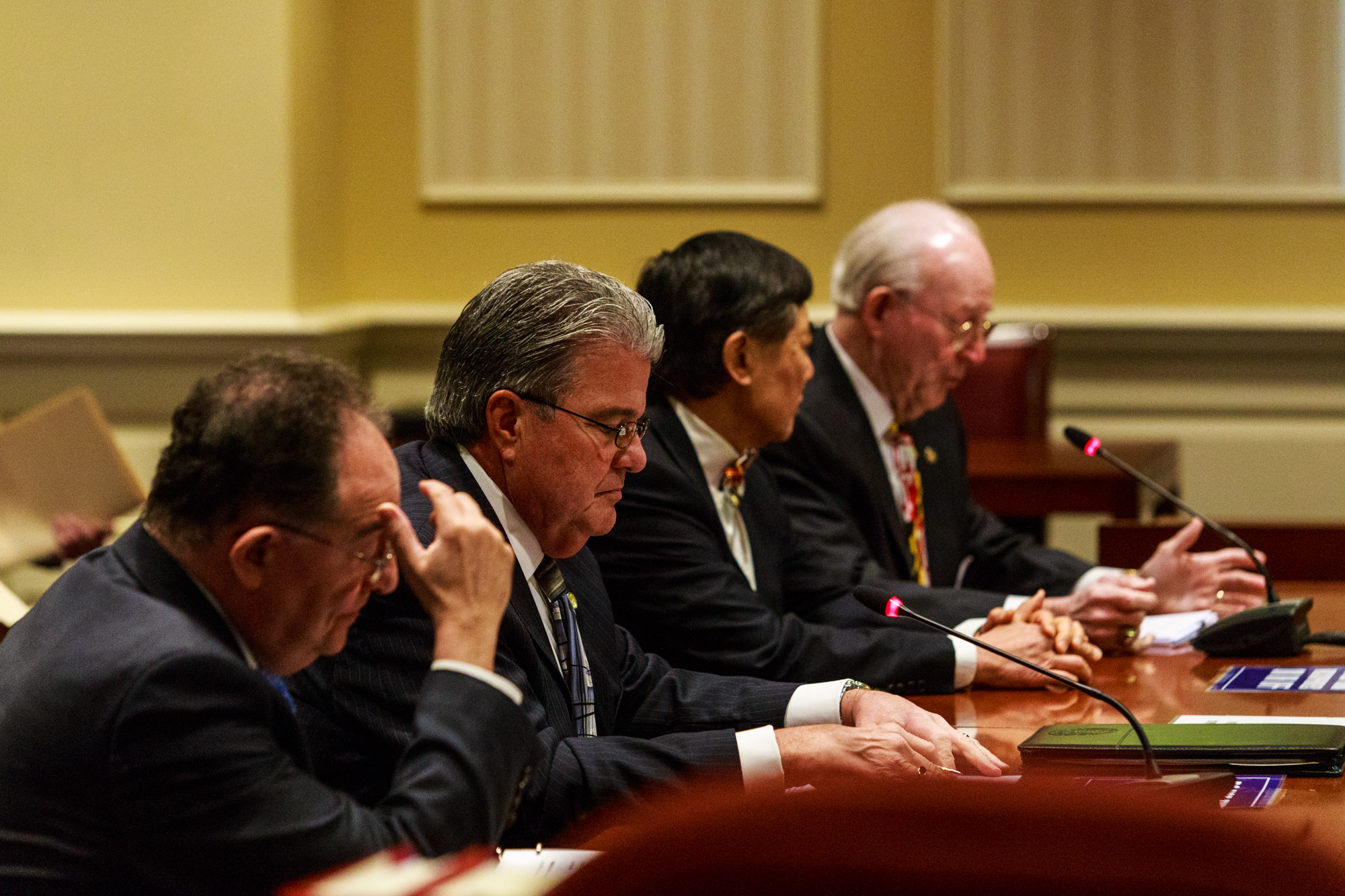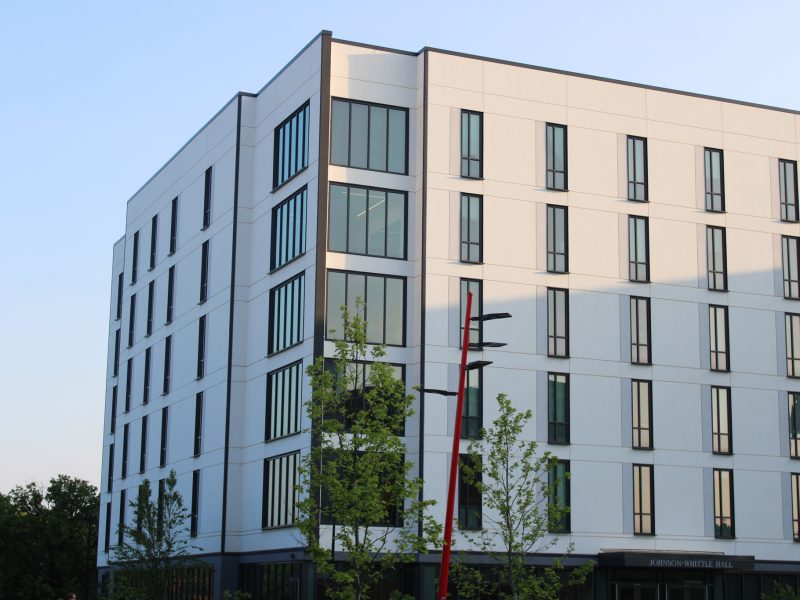The state House of Delegates passed an amended version of the Strategic Partnership Act of 2016 Wednesday, moving the bill forward in its process toward becoming law.
The House voted 92-44 to approve the third reading of the bill, which would formalize and expand on the existing partnership between this university and the University of Maryland, Baltimore campuses.
It will now return to the Senate for consideration of the House’s amendments before later being sent to Gov. Larry Hogan for final approval.
The proposed union between the campuses would tie this university to UMB’s professional schools, including medicine, law, pharmacy and dentistry — bringing this university in line with other Big Ten institutions, as noted in the bill’s preamble text.
Since the original iteration of the bill was introduced in the Senate, several changes have been made in response to concerns about potential impacts on other schools in the University System of Maryland, Baltimore City and the autonomy of UMB.
Lawmakers stripped all language referring to the partnership as a “merger” from the bill’s text, added additional funding for other university system schools and removed the clause allowing for one president in the future to preside over both campuses.
The university system supports the bill with its recent amendments, as they “simultaneously maintain an enhanced partnership between UMCP and UMB and ensure that each institution has a single president who can respond to the needs of that institution and its surrounding region,” system spokesman Mike Lurie wrote in an email.
“The USM believes that the legislation can now build on the strong foundation of MPowering the State and support the mission of the remaining USM campuses that serve the majority of students in the system,” he wrote.
In the discussion in the House chamber Wednesday, legislators confirmed that all of the university system institutions were now in favor of the bill.
Speaking to the House Appropriations Committee on March 22, Sen. Bill Ferguson (D-Baltimore City) said the current separation between campuses is a self-imposed limit on the state’s flagship university.
“For the last 50 years, we have had a separation between these two amazing institutions,” said Ferguson, a sponsor of the bill.
“In my opinion, it’s done a disservice to the potential of what we all know and what we have invested in, [which] is driving economic development in the state.”
The amended version of the House bill explicitly defines the partnership as a “formal strategic alliance which leverages the resources of each campus within the University of Maryland to benefit the state and improve and enhance: academic programs and experiences for students; research, technology, technology transfer and commercialization for economic development; and public service and the commitment to community development.”
It also adds a clause that outlines the expectation that the presidents of both campuses seek collaboration “with other institutions and entities, particularly in the Baltimore Metropolitan region … to benefit the state.”
Officials also hope the codified partnership and expanded collaboration might increase funding. Over a three-year period, the MPower initiative increased joint research awards by nearly $79 million, an increase of about 60 percent, the bill’s text reports.
Senate President Mike Miller, in the same committee hearing March 22, emphasized the benefits from this bill’s passage won’t just affect universities but also will spread throughout the state.
“This is about moving the state forward, creating jobs and moving all colleges up. … It’s about a win-win for the entire higher education system,” he said. “If you’re concerned about moving the state forward, you’re going to vote for this bill.”
Wednesday, legislators noted that the fiscal note available online does not include the changes made by the House amendments, but said they plan to update the fiscal note for the bill when it is enrolled.
As he had in previous hearings, university President Wallace Loh explained that the existing collaboration between campuses came as a result of cooperation between UMB President Jay Perman and himself. In order to preserve the relationship, he said, it must become law.
“Partner and flourish; don’t partner and perish. It is about codifying the success,” he said to the appropriations committee.
“It is not about dividing the pie; it’s about expanding the pie. That is the power of partnership.”



